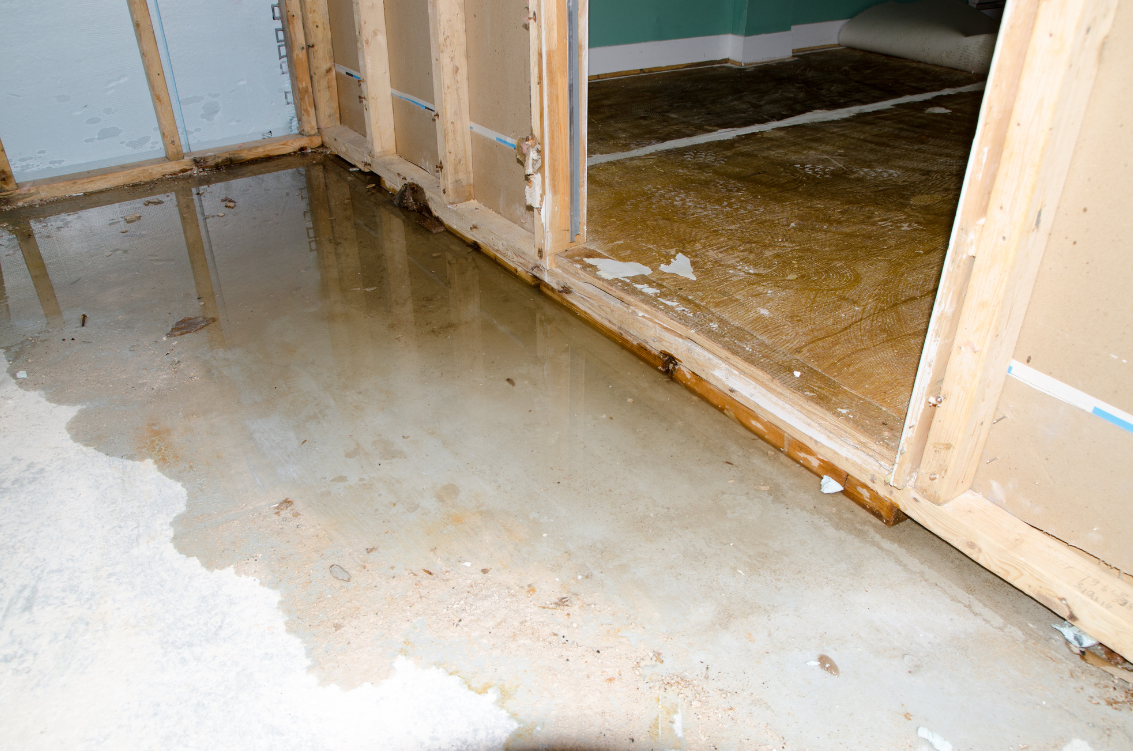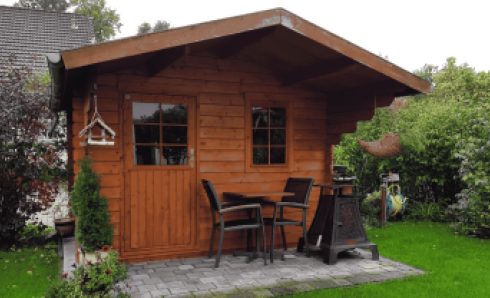Water damage in homes can be a significant concern for homeowners across Ireland. Not only can it cause extensive property damage, but it also poses risks to residents' health and safety.
Understanding the causes and consequences of water leakage and implementing preventive measures is essential both in the short and long term. This guide provides comprehensive advice on managing water escape, including practical tips on maintenance and insurance coverage to protect your home and finances.
What are the Most Common Causes of Water Escape in Irish Homes?
Identifying and addressing the sources of water escape can prevent damage and save homeowners considerable stress and expense.
Faulty Plumbing and Pipe Bursts
Regular plumbing inspections are crucial as they help identify potential weaknesses in the system that could lead to plumbing failures. We advise homeowners to use qualified professionals to conduct inspections every 18 to 22 months.
In theory, inspections should help prevent burst pipes, but this can happen anytime for several reasons, including corrosion, heat, cold, and external physical damage.
Damaged Water Tanks and Heaters
Water tanks and heaters are common culprits and are some of the leading causes of escaped water in the home. Routine checks and maintenance are vital to ensure these appliances are in good working order and do not contribute to water leakage. In Ireland, checking your water tanks and heaters once a year is recommended.
Compromised Appliance Hoses and Connections
Appliance hoses and connections can degrade over time, leading to unexpected water leakages. Inspect these regularly and replace any components that are past their best. We know it can be tempting to try and get a few extra years out of an appliance to save on cost, but financial implications can be huge if something goes wrong.
Structural Issues Leading to Water Ingress
In older homes, structural vulnerabilities such as cracked walls or inadequate roofing can lead to water ingress. Addressing these issues promptly is essential to prevent extensive water damage. Again, letting a small crack slide is easy, but what comes next could lead to substantial damage.
How Does Cold Weather Increase the Risk of Water Leaks?
Cold weather poses additional risks for water leaks in homes due to the effects of freezing temperatures on plumbing systems.
Freezing Temperatures Causing Pipe Bursts
When temperatures drop, the water in pipes can freeze, expand, and cause the pipes to burst. Homeowners can mitigate this risk by:
- Ensuring they are properly insulated
- Maintaining a warm home environment
- Use your taps regularly
- If you are away for more than a few weeks during winter, ask a friend or neighbour to come in and run all of the taps in the house for 5 minutes
However, there might come a time when you suspect something isn't quite right. Here are some of the telltale signs that your pipes might be frozen:
- There's a bad smell coming up from your sinks
- Little to no water coming through
- Visible frost on the exterior of the pipes
- A slow-flushing toilet
- Your boiler won't turn on
- Your central heating makes a gurgling sound when it's on
If you're sure your pipes are frozen, try turning on the taps to let some water run through for 30 seconds, but not longer. You can also try turning on your central heating and waiting a few hours. If neither works, it's best to call a professional plumber.
Insufficient Insulation of Pipes and Water Tanks
Proper insulation of pipes and water tanks is crucial to prevent freezing. Homeowners should check the insulation regularly, especially before the winter season, and upgrade it as necessary. Insulation doesn't cost the earth, and you can find some relatively cheaply online - although you'll want to factor in whether you need somebody to install it, which could be expensive.
Increased Pressure on Plumbing from Ice Formation
Ice formation in pipes can increase pressure within the plumbing system, potentially leading to leaks or bursts. As the water turns to ice, it expands, which causes the pressure in the pipes to increase. Eventually, the ice stretches and damages plumbing and taps, leading to leaks and bursts when the temperatures rise again.
Checking pipes before and after major cold spells is always a good idea. If you have a pressure-reducing valve in your home, you can turn it down; otherwise, try turning your heating on at a low temperature for a few hours to see if it helps.
What Should You Do Immediately After Discovering a Water Leak?
Taking swift action upon discovering a water leak can minimise damage and facilitate more straightforward repairs.
1. Shut Off the Main Water Supply if Necessary
Knowing how to shut off the main water supply quickly can prevent further damage. This should be one of the first steps taken in the event of a significant leak. Also, turn off your main electricity if you have access to it and your central heating.
2. Assess and Document the Damage
Documenting the extent of water damage is crucial for insurance claims and repair assessments. Take photos and make detailed notes describing the damage.
3. Contact a Professional Plumber Immediately
Contact a professional plumber to address and repair the source of the leak as quickly as possible. Time is of the essence when you have a water leak in the home.
4. Notify Your Insurance Provider
If you have home insurance and think you'll need to claim, inform your insurance provider about the incident as quickly as possible to begin the claim process.
5. Begin Drying Out the Affected Area
Start drying out affected areas immediately to prevent mould growth and additional structural damage. Use fans, dehumidifiers, and other drying equipment.
How Does Water Escape Impact Home Insurance Policies?
Water escape incidents can significantly affect home insurance policies, premiums, and coverage.
Potential Increase in Premiums Following a Claim
Homeowners may face increased insurance premiums following a water damage claim, which is why mitigating the likelihood of such an event is so important.
Requirement for Comprehensive Coverage for Full Protection
Comprehensive insurance coverage is necessary to protect against all types of water damage. Homeowners should review their policies to ensure adequate protection.
Exclusions and Limitations on Water Damage Claims
Understanding the common exclusions and limitations in home insurance policies regarding water damage is vital, as you don't want to be caught short when you experience a major incident. Homeowners should be aware of what their policy covers and what it does not.
How to Prevent Escape of Water in Irish Homes
Preventive measures can significantly reduce the risk of water escape, protecting property and peace of mind. Here are some of the best:
1. Leak Detection Devices
Installing leak detection devices can serve as an early warning system, alerting homeowners to potential water escapes before they cause significant damage.
2. Regular Maintenance and Inspections of Plumbing
Regular maintenance and inspections of plumbing systems are critical in preventing water escape. It allows homeowners to identify and address issues before they lead to damage.
3. Insulating Pipes and Tanks Against Cold Weather
Insulating pipes and water tanks is a hugely effective preventive measure against freezing and leaks, particularly during Ireland's cold, wet winter months.
4. Installing Water Pressure Regulators
Water pressure regulators can help protect plumbing systems from leaks caused by excessive pressure. Installing these devices can extend the life of your plumbing.
5. Upgrading Old or Damaged Pipes and Appliances
Upgrading outdated or damaged pipes and appliances can prevent future water escapes. This proactive approach can save money and hassle in the long run. Lead pipes continue to be a major health concern in Ireland, and the government still has a scheme to provide grants for replacing lead piping and fittings.
Protect Your Home from Water Damage with 123.ie
We rarely think about all the plumbing that keeps our homes ticking over - or how easily a minor issue can become catastrophic. Severe water damage can cause tens of thousands of euros in damage in the blink of an eye, so preventative measures and regular maintenance are vital.
However, sometimes, all the care in the world can’t prevent disaster. When it strikes, you'll be glad you have a home insurance provider like 123.ie behind you, ready to help you pick up the pieces and restore your home to its former glory. 123.ie offers comprehensive home insurance solutions that include protection against water damage, providing significant peace of mind for homeowners.





